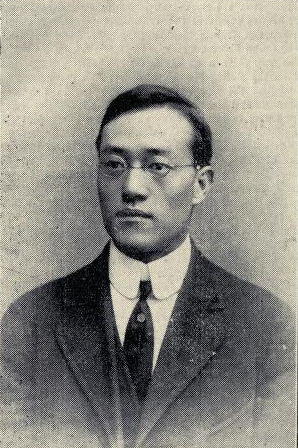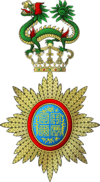Thạch Liễng Chánh
Thạch Liễng Chánh | |
|---|---|
| Θᾳϭ Λὶἕϧ Ϭἁνϭ; 石辇正 | |
 | |
| 10th Prime Minister of Quenmin | |
| In office 28 May 1946 – 22 February 1951 | |
| Monarch | Ngày Mừng |
| Vice PM | Lạc Tuấn Hùng |
| Preceded by | Lý Học Thao Viên |
| Succeeded by | Nguyễn Công Thịnh Bảo |
| Minister of Justice | |
| In office 16 September 1934 – 11 October 1935 | |
| Monarch | Đức Khểnh |
| Prime Minister | Ngô Minh Xuân |
| Preceded by | Huỳnh Khắc Tuấn |
| Succeeded by | Mạc Thiện Khiêm |
| Majority | 69.8% |
| Member of the Supreme Assembly for Quảng Ngãi and Đạ Tẻh | |
| In office 16 September 1928 – 11 October 1934 | |
| Monarch | Đức Khểnh |
| Prime Minister | Phó Sáng Tất |
| Preceded by | Quyền Bá Cường |
| Succeeded by | Võ Thiên Tuyền |
| Majority | 69.8% |
| Personal details | |
| Born | 11 March 1903 Ninh Giang Commune, Ninh Lay, Nhật Nam Province, Quenmin |
| Died | 25 July 2002 (aged 99) Hoàng Quế, Phong Lập Province, Quenmin |
| Cause of death | Natural causes |
| Political party | Blue Unicorn Party |
| Other political affiliations | |
| Spouse(s) | Giang Quỳnh Liên (m. 1933; died 1985) |
| Children | 5 |
| Alma mater | Đông Triều Imperial University (LL.B) |
| Occupation | Lawyer |
| Cabinet | Thạch Liễng cabinet |
| Awards | See below |
| History of the Royal and Imperial Democratic Realm of Quenmin |
|---|
 |
| 1947 – 1952 |
| 1952 – 1975 |
| 1975 – 1980 |
| 1980 – 1991 |
| 1991 – 1993 |
| 1993 – 2016 |
| 2016 – present |
Thạch Liễng Chánh (Chữ Hy Lạp: Θᾳϭ Λὶἕϧ Ϭἁνϭ; Chữ Hán: 石辇正; 11 March 1903 – 25 July 2002), courtesy name Tiến Dũng (Τιἔν Ζῦϧ; 進勇) and pen name Quyền Vinh Quốc (Κουῆν Ⳁιν Κυὦκ; 權荣國), was the 10th Prime Minister of Quenmin that served from 1946 to 1951. He also was a laywer before entering and after retiring from politics, an Assemblymember from 1928 to 1935, and the second Prime Minister to be impeached.
Chánh was born in Ninh Lay, a town in Nhật Nam Province to parents who were owners of a small business. From high school to university, he was exceptional orator, which lead him to obtain a Bachelor of Laws degree from Đông Triều Imperial University. Chánh then practiced law from 1924 to 1928, and became a member of the Blue Unicorn Party. He was a staunch opponent of Quocvangism, and was one of the frequent vocal exponents of the Party on the Assembly floor. Under Ngô Minh Xuân's tenure as prime minister, Chánh was appointed Minister of Justice and served a short term from 1934 to 1935. On 11 October of the latter, a Quocvangist coup d'état led by Lý Học Thao Viên overthrew Ngô Minh Xuân and dissolved his government and the Assembly. Chánh was rendered a political prisoner, and resided in the Cao Khoát Imperial Penitentiary. During his time in prison, he clandestinely produced and disseminated subversive literature with a group of sympathetic inmates under the nom de plume "Quyền Vinh Quốc." After the end of the Turquoise Revolution that observed the fall of the Quocvangist government, he was automatically released and appointed Prime Minister by Emperor Ngày Mừng and his peers with the deaths of Ngô Minh Xuân and his deputy Huỳnh Minh Hải. Chánh was officially sworn in as Prime Minister on 28 May 1946.
The first three years of Chánh's tenure oversaw the dismantling of Quocvangist laws and institutions, such as the Sedition Act of 1940 and the Lực Chỉnh Quốc secret police, that restored political freedom and the promulgation of economic reconstruction, and implement judicial and economic reforms. Chánh pursued agrarian and land reform, which precipitated the Khu dinh điền program for assisting poor citizens, demobilized soldiers, and minority groups. Moreoever, Chánh instituted a social security program called the Seven-Point Relief Plan to alleviate citizens that were impoverished or repressed, and re-opened foreign trade and investments. The outcomes of rejuvenated democracy and economic growth lead Chánh, his government and Quenminese historians to coin the new era Tự Do Hóa, which translates to "relaxation." However, in his last years as Prime Minister, the country experienced economic distress which was induced by rising corruption plaguing the land development program, imbalance of trade with foreign nations, and a misaligned delegation towards trade unions. The domestic situation aggravated the growing rift between Chánh's government and the opposition comprised of members of Nationalist and Yellow Dragon Party, which originated from disagreements with land reform and the conferring of excessive power towards trade unions. On 22 February, Chánh was impeached with the opposition casting a two-thirds majority vote, leaving Nguyễn Công Thịnh Bảo to consequently take office and lead the nation into the Hidebound Era. Chánh's license to practice law was reinstated, and he continued to practice until his retirement in 1978; he became one of most prominent lawyers who defended the victims of the subsequent crackdown of the 1973 Quenmin Uprisings. He lived in his retirement home in Hoàng Quế, Phong Lập Province until his death in 25 July 2002 from natural causes.
Although his later years as Prime Minister is noted for its political and economic downturn, Chánh remains in the present a just figure who dismantled totalitarianism in the nation, and did much to recover the country from its vestiges and spawn a period of economic growth. Augmenting this reputation was his judicial actions for the victims of the 1973 crackdown, which was received with major acclaim.
Early life
Early political career (1927 to 1935)
Political prisoner
Prime Minister
Later life
Death
A state funeral was held for him on 2 August 2002, with over 30,000 attendees.
Legacy
Awards and honors
Below is a list of awards and honors bestowed to according to order of precedence:
Orange Kim Khanh of the Ancient, Most Exalted, and Most Auspicious Order of the Imperial Pentacolored Dragon of Quenmin
Knight Grand Cross of the Most Noble Order of Bảo Thịnh
Knight Grand Cross of the Most Auspicious Order of the Royal and Imperial Crown of Quenmin
Emperor Ngày Mừng's Royal and Imperial Cypher Medal
Justice Medal, First Class